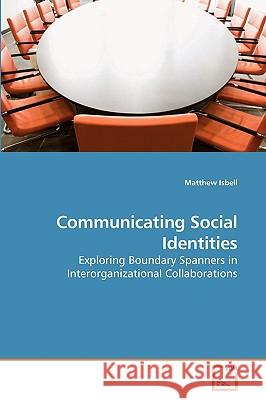Communicating Social Identities » książka
Communicating Social Identities
ISBN-13: 9783639245400 / Angielski / Miękka / 2010 / 196 str.
This book investigate the ways in which members of interorganizational collaborations (IOCs) create and maintain the processes and structures of collaborative organizing. This book argues that IOCs are complex organizations that include ongoing communicative processes among individuals who act as collaborative members and constituent representatives. Specifically, this book seeks to explain how individuals come to understand collaborative identities that create structures affecting actions and outcomes of the collaboration. Results from my research conclude that members in IOC use social identity to help orient and organize the diverse voices present within the collaboration. IOC members invoked group prototypes that created sub-groups within the IOC, thus allowing members with different goals for participation to find ways to justify membership. In addition, memberships within the IOC was constantly negotiated between members as the IOC worked towards certain goals. As sub- groups communicatively interacted with each other in the IOC, individuals would become more or less engaged in the collaborative process based on the successes and failures of the sub-group a member has joined.











